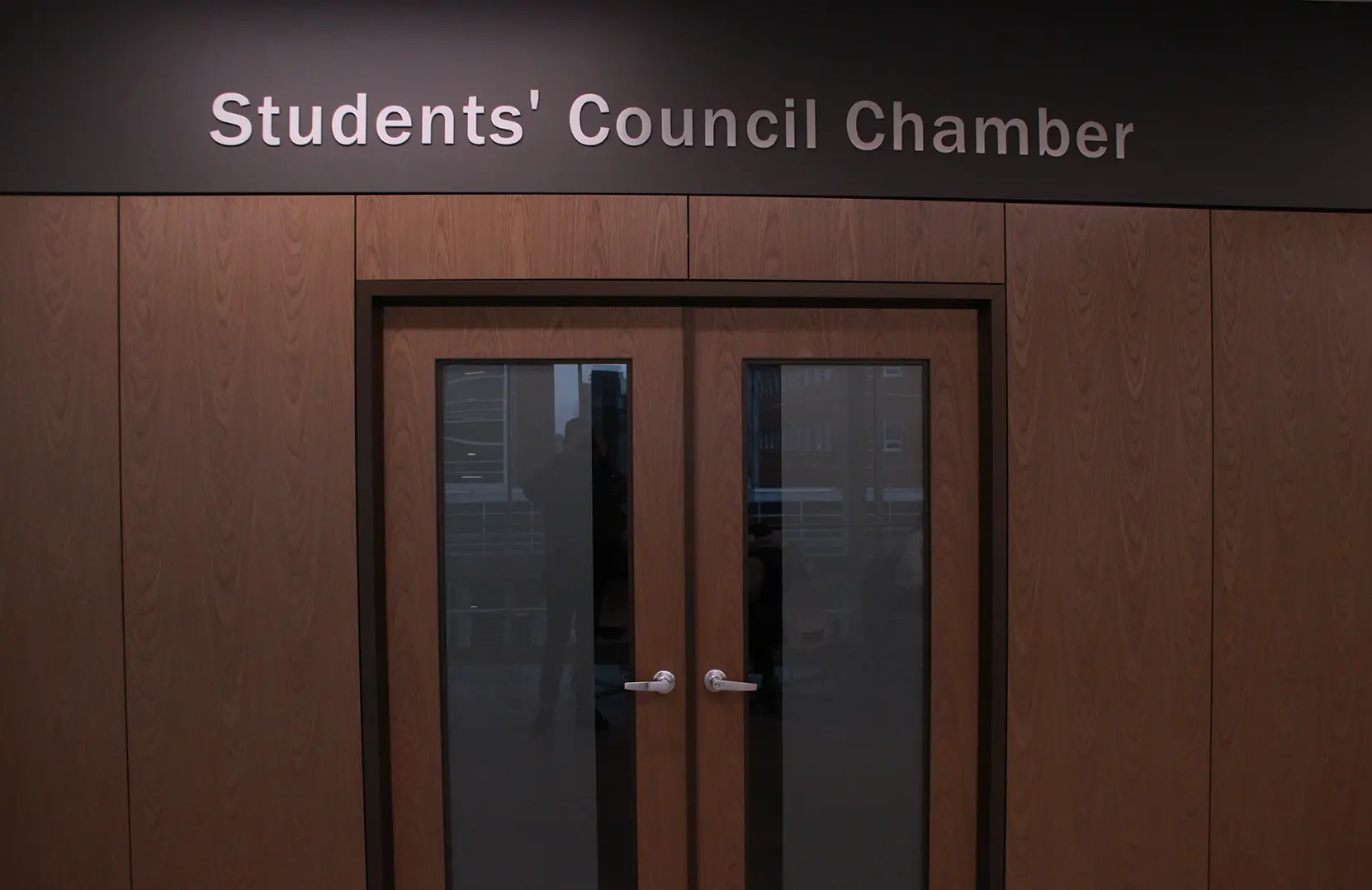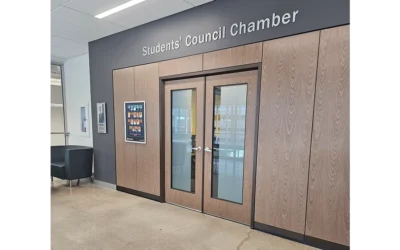Did you know that MacEwan has a students’ council? It has 14 councillors and five executive committee members who represent the student body of MacEwan. Right now, it’s election season for the councillors, and the Griff is here to help explain how this specific branch of MacEwan’s student politics works.
All elected representatives are required to behave in an ethical and appropriate way, and are held accountable to a code of conduct policy. Remember, as MacEwan students, we all pay for the operation of SAMU and the Students’ Council with our student fees. Make sure to vote to get your money’s worth!
So why run?
Unlike the Executive Committee, councillors aren’t paid a salary. The positions are paid an honorarium, which provides $60 for each council meeting they attend, up to a maximum of $480 per academic term. They can also receive $60 per committee they join, which can go up to a maximum of $120 per academic term for committee work. Student councillors can be paid no more than $600 per term for their work.
The position also provides the councillors with valuable experiences and a platform to push and advocate for students like themselves. Many student councillors also end up running for positions on the Executive Committee later on.
Nominations
First, in order to be elected, candidates for Students’ Council need to nominate themselves during the appropriate nomination period. Candidates need to submit information demonstrating their eligibility for the position, the endorsement of 10 SAMU members (this includes most MacEwan students if they pay student fees), and a declaration of intent to stand for election and hold office should they win.
While campaigning, candidates are generally free to campaign for themselves however they wish, as long as they follow some important rules.
The Campaign Rules
- Candidates cannot use any SAMU or MacEwan resources for campaigning
- Candidates cannot disburse campaign materials that have value beyond their campaigning function (e.g. they can’t hand out free booze)
- Candidates can’t campaign within five metres of a student who is voting
- Candidates may not campaign during class time if an instructor disapproves (and the instructor must give equal opportunity to all candidates)
- Candidates can’t spend more than $250 on their campaign
- Candidates and their supporters can’t spread misinformation or deface another candidate’s campaign materials
- Candidates can only campaign on social media approved by SAMU
Once the campaigning is done, it’s time for the election. This year’s elections start on Oct. 11, and you’ll receive a link to vote in your student email.
When there aren’t more than 14 candidates running, they actually run against themselves in a “YES-NO” vote. This means students vote YES or NO on each candidate. Candidates need to have enough YES votes — they don’t automatically win.
If there are too many candidates and there is a tie, the result is decided by a coin toss.
What do councillors do?
As a whole, the entire student council is responsible for approving bylaws and writing policies that govern what SAMU can do. They form committees that are able to address specific issues such as mental health or cost of living, as well as create and operate various programs, services, and businesses within SAMU that help improve the student experience.
Arguably, the greatest power a students’ councillor holds in SAMU is their ability to vote on the various motions and amendments brought forward during councillor meetings. If a motion is made to form a sub-committee and not enough councillors vote for its formation — it won’t happen.
They are also our voice for negotiating and advocating with both the university itself and municipal, provincial, and federal governing bodies. Students’ Council voices student concerns like tuition and student fees to the province, which ultimately decides the maximum amount that tuition can increase per year. SAMU also negotiates with the university, which decides how much within that limit tuition will actually increase.
While most of these negotiations with the province and the university are handled by the Executive Committee, it’s often the councillors who are voicing student concerns to the executives. With a higher number of students’ councillors than executive committee members, they act as a broader arm for students to reach out to.
Students’ Council meets once per month. These meetings are where councillors and executives update progress on initiatives, bring forth issues and concerns, and discuss strategies for SAMU. During these meetings, each executive submits a written report to the council which helps keep all members accountable.
What are committees?
There are generally only three types of committees that your elected student councillors will be responsible for. Students’ councillors are appointed to these committees every year at the council meeting in November. This is done through a secret ballot vote and an official motion. Appointments can happen throughout the year, as needed.
The first are standing committees, which are permanent committees that are responsible for addressing ongoing needs like finance, governance, and audits. These committees are also able to create sub-committees — like the Grants and Awards Sub-Committee —which assist with a more specific aspect of the standing committees’ mandate.
Ad-hoc committees are temporary and are responsible for resolving specific, timely issues.
So, if you hear your student councillor saying that they will bring your concerns to a committee, it’s (probably) not some bafflegab to make them sound like they’re doing important work. These committees are essential to maintaining the order and structure of SAMU. If there is room, any MacEwan student is able to volunteer as a student-at-large on these committees, so be sure to look for vacancies.





0 Comments